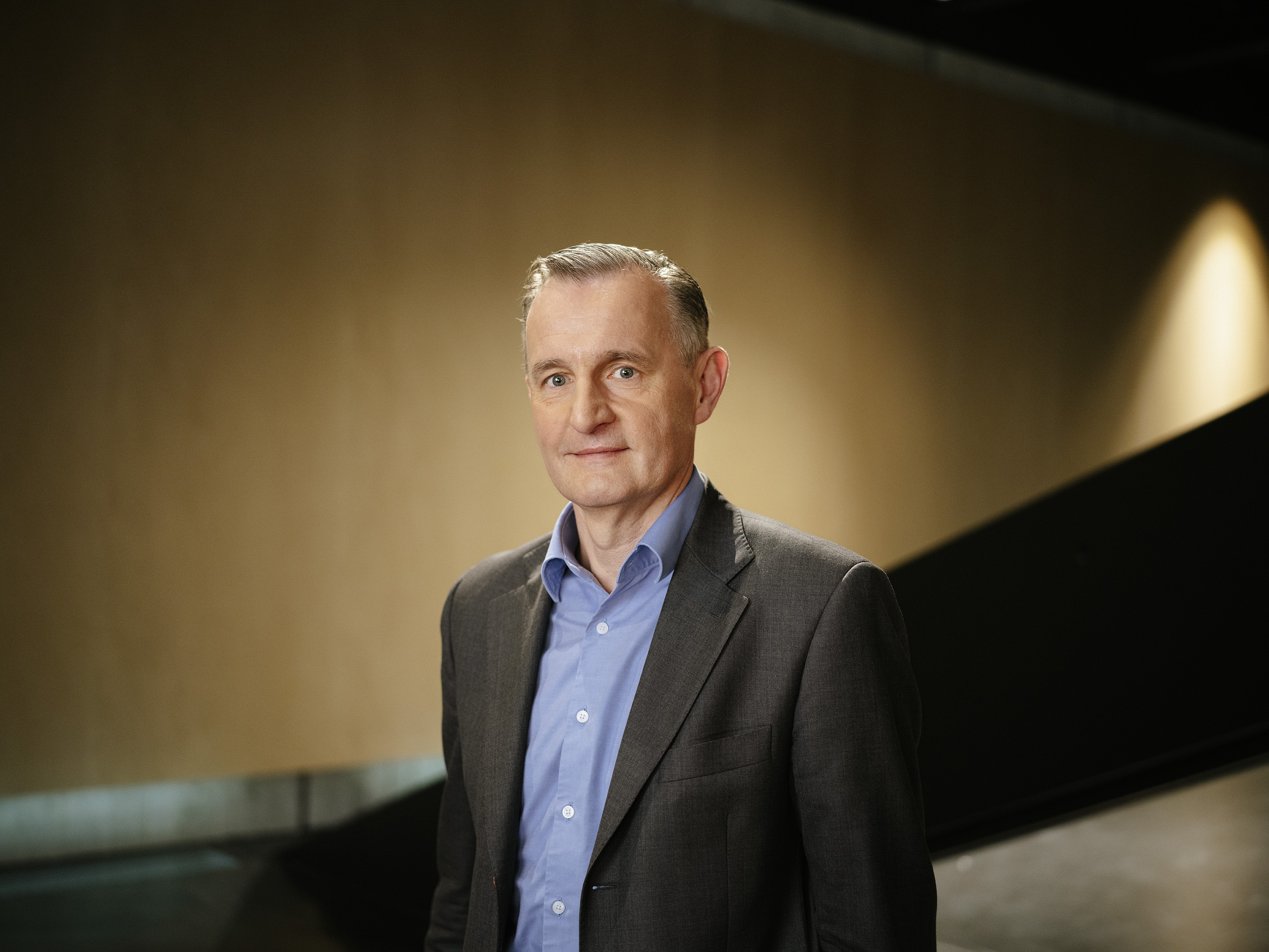Text Sophie Ströbitzer
Fotos Shutterstock, Zukunftsinstitut, JAkwerth
Career and Sustainability
In an era where environmental concerns and social responsibility are assuming ever greater importance, the private sector is undergoing an unstoppable evolution: Companies are challenged not only to pursue short-term profits but also to create long-term value for their stakeholders and to operate sustainably in social, environmental, and economic terms.
In the age of Fridays For Future, #MeToo, and #BlackLivesMatter, social and environmental responsibility is increasingly moving into the spotlight, not only in politics but also in the private sector. Especially since the Covid-19 pandemic, the societal call for companies to integrate sustainable practices and not just pursue short-term profits has significantly increased. For example, a 2021 survey by the job platform Stepstone shows that 76% of employees in Germany consider it important for their employer to prioritize sustainability. Particularly among students, the demand for a responsible attitude from companies is evident. According to the study, around one in four (26 percent) students in Germany considers Corporate Social Responsibility (CSR) to be one of the three most important factors shaping a company‘s image. What exactly is behind the buzzword CSR and what does a sustainable career look like today?
CSR (Corporate Social Responsibility) is an approach aimed at creating long-term value by implementing a business strategy that considers ethical, social, environmental, and economic aspects. This holistic approach has evolved from a marginal issue to an integral part of the business strategy of many companies. According to a survey by Statistics Austria, more than half of all companies in Austria in 2022 are paying regard to the energy consumption of their digital devices and implementing measures to reduce paper consumption.
But beware: Sustainability is often used as a marketing tool to make customers more willing to buy and is not always taken as serious as it should be. So, let‘s take a closer look at what corporate sustainability actually means: CSR guidelines are based on the 17 Sustainable Development Goals (SDGs) of the United Nations and provide guidance. The three pillars of sustainability for companies are Environmental, Social, and Economic.
The environmental dimension focuses on reducing greenhouse gas emissions, protecting biodiversity, and conserving resources. The social pillar includes promoting equality, ensuring dignified working conditions, and employee satisfaction within the supply chain. Economically, sustainability means long-term, responsible economic activity that takes into account not only profit maximization but also the well-being of society and the environment.
Pillars for a Sustainable Corporate Strategy
Dealing with what these demands mean in concrete terms is Michael Pachmajer‘s daily business. As a sustainability and transformation expert at the Zukunftsinstitut, he enables and advises middle market companies, family-owned businesses, and the public sector on making a digital and sustainable transformation. According to him, initiatives from the private sector are becoming increasingly visible not only from the perspective of employees but also due to events such as the pandemic and Russia‘s attack on Ukraine. “The direct effects of events such as climate change and global crises are becoming increasingly tangible. In wealthy industrialized countries like Germany and Austria, we are now experiencing floods, droughts, and other extreme weather phenomena that directly affect people. This leads to rethinking and increased awareness of sustainability and the way we produce and consume products,” says Pachmajer. Although every company must find its own sustainability strategy, there are also general cornerstones that are essential for a changing economic system.

Michael Pachmajer
sustainability and transformation expert at the Zukunftsinstitut and founder & CEO of d.quarks.
“Companies have to review their energy sources and switch to renewable solutions. It is also important to have a transparently traceable supply chain that is moving towards a circular economy. In addition, environmental costs have to be included in the prices of their products to create an incentive for sustainable behavior. With this approach, sustainable products are becoming cheaper and more competitive,” according to Pachmajer. Overall, companies should also expand their definition of economic success to include social and environmental aspects.
Legislation also plays an important role. The Supply Chain Due Diligence Act in Germany, which requires companies to scrutinize their supply chains, ensuring ethical social and environmental standards, as well as investing in green initiatives, is a step in the right direction. Additionally, obligations to report, such as the EU-Corporate Sustainability Reporting Directive, which demands clearer and more uniform disclosure of environmental, social, and governance data to improve transparency for investors and stakeholders, are important. Companies failing to comply may even face legal penalties. However, to create a lasting change as a society, it requires a combination of legal regulations and initiatives from the private sector and the population, the sustainability expert agrees.
Demands of the new generation of employees are increasing
Job seekers also make a significant contribution to this transformation. Their demands on future employers will be crucial for creating a sustainable transformation. Two students from the Technical University of Vienna have shared their thoughts regarding corporate responsibility with us.
Helene, 21
Environmental Engineering Student:
“Corporate sustainability is one of the most important challenges that companies and our entire economic system will face in the coming years.“
“In light of the inevitable impacts that climate change and all associated effects will have on our society as a whole, radical rethinking is necessary. Ideas and concepts, data and models already exist; concrete measures and projects are the next step to establish a sustainable and socially just economic system in the long-term. It must become a matter of course for businesses to acknowledge their responsibility towards the environment and society. Greenwashing and superficial measures are no longer sufficient, and I see it as my duty to implement innovative ideas and projects throughout my career and turn visions into actions. Employers are also increasingly recognizing that in the future, monetary criteria alone will not be decisive for economic success. The implementation of consistent, credible, and meaningful sustainability concepts will be important future factors for employee attractiveness and the competitiveness of companies.“
Clara, 21
Environmental Engineering Student:
“Corporate sustainability to me means that companies have a duty to become aware of their responsibility towards people and to take concrete actions in this regard.“
“As an environmental engineer, I find the contribution that a company can make to ecological sustainability particularly interesting. This entails certain expectations that I, as well as many of my classmates, have for our future employers. It is crucial that there is a commitment to sustainability at all levels of management and not just within the sustainability department. Based on my experiences so far, this is far from being the norm everywhere. Instead, there is still often the attitude that sustainable practices are a necessary evil, which may look good in advertising at best but inevitably leads to economic loss. This is precisely where I see the role of young people who want to pursue a sustainable career path: to demonstrate that there are alternative approaches and that effective and economical solutions for reducing CO2 emissions and conserving resources can be found in all sectors. Therefore, I do not view graduates of technical universities often ending up in sectors with inherently high greenhouse gas emissions, such as industry, construction, or mobility, as an obstacle to a sustainable career, but rather as an opportunity for us to implement measures directly at the source.”
So, what should be considered when looking for a sustainable career? “An essential aspect is to verify the credibility of the statements of management and owners regarding sustainability and moving into a circular economy. It is important how transparent a company is regarding its production processes and supply chains to identify greenwashing from companies. Certifications can provide clues, but they do not replace one‘s own research,“ says Michael Pachmajer. Above all, it is important to critically question the statements and actions of companies and to seek transparent information about their sustainability efforts. Sustainability reports from trusted auditing firms can be helpful in this regard. Even though the trend is moving towards sustainability and there are not only instances of greenwashing but also many serious efforts by companies, the motto remains: If you want to pursue a green career, you must pick up the reins yourself.


Peter Weinelt,
CIO, Wiener Stadtwerke
www.wienerstadtwerke.at/jobs
A view from the
company’s perspective
For WSTW Group, sustainability is at the core of our business. We power the City of Vienna, be it in the shape of electricity, public mobility, heating, cooling, or stable power grids.
It is our mission to transform Vienna into a climate-neutral city. For us, this is a question of fairness – future generations are no less entitled to an intact planet. But also at stake are energy security and self-reliance. We can produce – and use – wind, solar and hydroelectric energy regionally. Using fossil fuels makes us dependent on imports. The resultant problems have become painfully obvious, not least since the outbreak of the war in Ukraine.
It is high time we left behind the age of fossil fuels. This is both a huge challenge and an enormous asset. We provide jobs that make a difference! We are looking to attract people who will join us in making Vienna carbon-free. We are looking to work with people from diverse professional backgrounds who are willing to contribute their ideas and provide thinking outside the box.
Tips
How to find companies that honestly and actively
engage in Corporate Social Responsibility.
- Look at industry, company, sustainability reports, or studies on CSR in various sectors. There are also sustainability awards and recognitions in different sustainability categories that can help you identify companies.
- Use networking events to identify companies that are passionate about this topic. For example, inform yourself about our career event voice.of.diversity including ECTS!
- Follow companies on social media platforms like LinkedIn, Twitter, or Instagram. Often, companies share their CSR initiatives or participate in relevant discussions.
- Swap ideas with others: discuss with friends, colleagues, or in online forums. They may have recommendations or experiences with companies that are committed to CSR.
- You can also ask AI. AI agents can provide you with good support in your research.
- Nowadays, there are even dedicated job boards or at least specific categories for “green jobs” on job platforms. You can also find relevant opportunities on our TU Career Center job.platform.
- Use (job & career) fairs in your search and ask companies directly about their sustainability values and activities, for example at the next job fair of TU Wien, the TU.day on May 16, 2024.
- Remember that Corporate Social Responsibility can be interpreted differently. The most important thing is that you can identify with the values and goals of a company in order to build a meaningful and long-term relationship.
- Here are some tips for building a sustainable career:
- Sustainable career planning is not about a straightforward CV – it should be adjustable to your personal wishes and your life circumstances.
- Build a personal network; for example, use social networks or attend meetups in your industry or area of expertise.
- Reflect on your current situation and your goals to identify competences you want to develop further.
- Autonomy, development opportunities, a motivated team, security, and well-being in a job can contribute to a sustainable career.
- Use a consultation session at TU Career Center for free to get advice on career planning.



